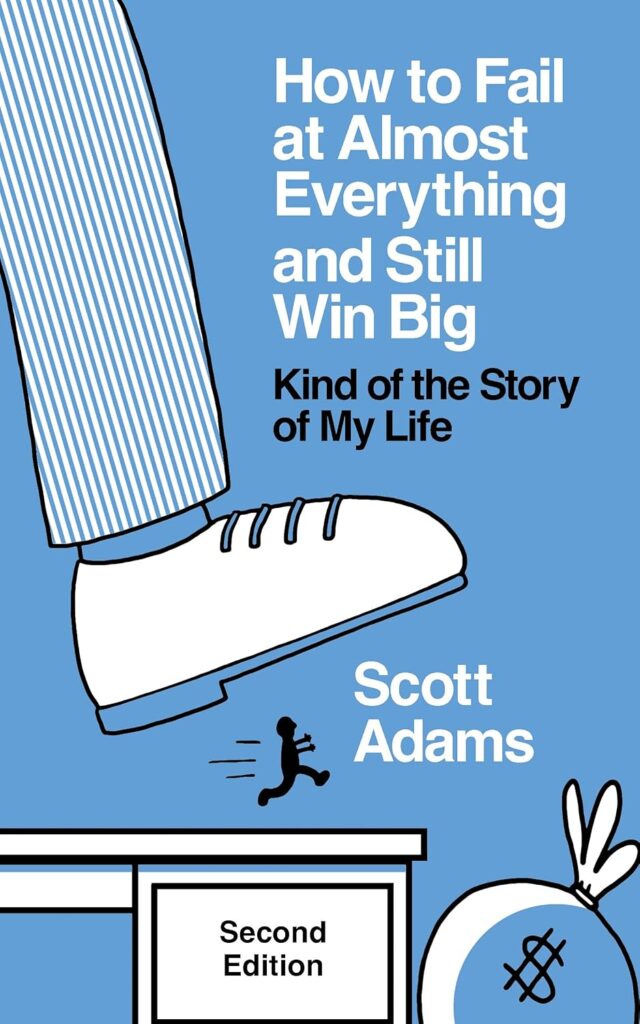In a world that often emphasizes specialization and mastery, Scott Adams, the creator of the popular comic strip “Dilbert,” offers a refreshingly different perspective on success. He believes that a combination of mediocre skills can make an individual surprisingly valuable. This unconventional approach has resonated with many, particularly in an era where the job market is rapidly evolving and traditional career paths are becoming less predictable.
The Dilbert Principle and Beyond
Scott Adams is no stranger to challenging conventional wisdom. Through “Dilbert,” he has humorously critiqued corporate culture, highlighting the absurdities and inefficiencies within it. His success as a cartoonist is not just a result of his drawing abilities, but also his knack for observing human behavior, his sense of humor, and his understanding of business dynamics. These diverse, yet individually mediocre, skills combine to create something uniquely valuable.
The Talent Stack Concept
Adams refers to this combination of diverse skills as a “talent stack.” The idea is that by being good (not necessarily great) at multiple things, you can differentiate yourself in a way that specialists cannot. For instance, Adams is a decent artist, a good writer, and has a solid understanding of business. None of these skills alone would have made him as successful as he is, but together, they allowed him to create a niche in the world of comic strips.
Examples of Effective Talent Stacks
- Communication and Technology: An individual with moderate skills in both communication and technology can bridge the gap between tech developers and non-technical stakeholders, a valuable role in many organizations.
- Marketing and Analytics: Someone who understands the basics of marketing and can also handle data analytics can craft more effective marketing strategies based on solid data insights.
- Leadership and Empathy: A manager who is not only capable of leading a team but also possesses a decent level of empathy can significantly enhance team morale and productivity.
Why Mediocrity Works
The beauty of the talent stack lies in its accessibility. Mastery requires years of dedication and practice, something not everyone has the time or resources for. However, achieving mediocrity in several areas is more attainable. Moreover, the intersection of these skills often leads to innovative solutions and unique perspectives that specialists might overlook.
Reducing Competition
Another advantage of the talent stack is reduced competition. Specialists often find themselves in highly competitive environments where only the very best succeed. In contrast, those with a diverse skill set can carve out unique niches where they face less direct competition. This unique positioning can lead to opportunities that would otherwise be inaccessible.
Adaptability
In today’s fast-paced world, adaptability is crucial. The combination of skills allows individuals to pivot more easily when industries change or new opportunities arise. For example, a professional who has skills in both digital marketing and graphic design can easily transition between roles or adapt to new marketing trends that require visual storytelling.
Building Your Own Talent Stack
Adams suggests a strategic approach to building your talent stack:
- Identify Complementary Skills: Choose skills that complement each other and enhance your primary abilities. For example, if you are a software developer, learning project management can make you more effective in leading projects.
- Continuous Learning: Stay curious and open to learning new things. The world is constantly changing, and being adaptable means continuously adding new skills to your repertoire.
- Leverage Existing Strengths: Start with what you are already good at and build from there. Adding skills that enhance your existing strengths can create a powerful combination.
- Network and Collaborate: Sometimes, your talent stack includes leveraging the skills of others. Building a strong professional network can provide access to complementary skills and knowledge.

How to Fail at Almost Everything and Still Win Big: Kind of the Story of My Life
The bestselling classic that made Systems Over Goals, Talent Stacking, and Passion Is Overrated universal success advice has been reborn.
Conclusion
Scott Adams’ belief in the power of a talent stack challenges the traditional notion that success requires mastery. By combining a range of mediocre skills, individuals can create unique value and position themselves in less competitive niches. This approach not only makes success more accessible but also fosters innovation and adaptability in an ever-changing world. As Adams himself has demonstrated through his multifaceted career, sometimes being a “jack of all trades” can indeed be a masterful strategy.



Comments are closed.